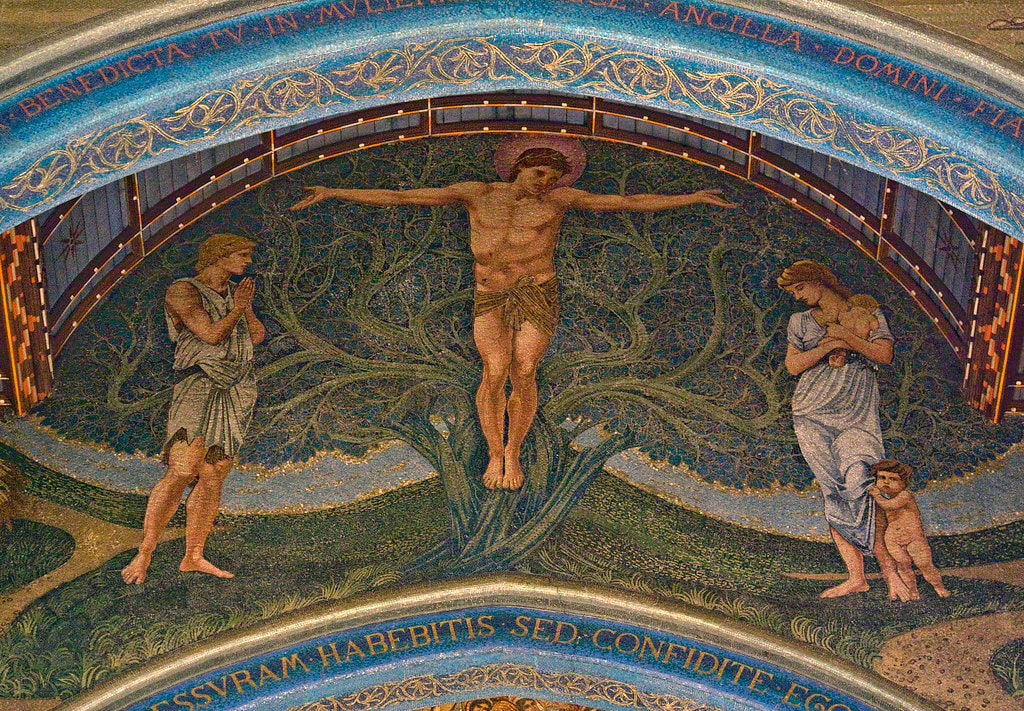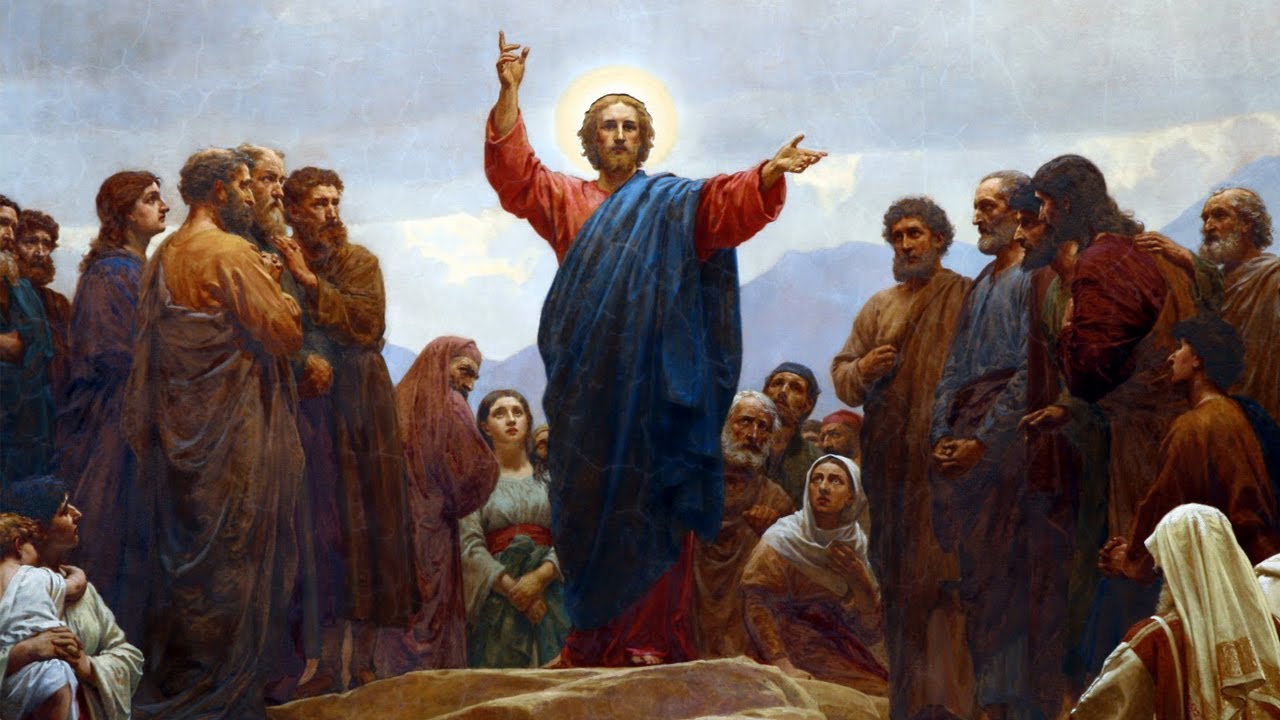"But when he, the SPIRIT of TRUTH, comes, he will GUIDE you into all the TRUTH. He will not speak on his own; he will speak ONLY what he hears, and he will tell you what is yet to COME." - John 16:13 ❤️☺️❤️
0 Comments
Zechariah 8:1-17; Our Scripture contains a prophecy and promise of hope. It is a message of comfort, rest and peace, and it will come to pass because the Lord has made the promise. We begin with the prophet saying he heard these words from “the Lord of hosts.” The Lord speaks with all authority since all power is at His command. He leads the armies of heaven, and we can rest in the knowledge that He will accomplish everything He desires, and He will always be victorious. In first speaking of Zion, the Lord said He “was jealous for Zion with great jealousy, and I was jealous for her with great fury.” In their past, the Lord disciplined the Jews, sometimes severely, when they strayed from Him. He simply would not tolerate idolatry, and so the Lord was jealous for His chosen people with a holy jealousy. There were times, though, when the Lord was jealous in protecting His people militarily, and He gave them victories over their enemies. The Lord will get revenge on everyone who has opposed His people. Also, Israel and all other people in the world have a common spiritual enemy: sin. The Lord is jealous in a holy way to protect us from the eternal, destructive consequences of sin. The Lord said He will return and “dwell in the midst” of Jerusalem. Because He is present, Jerusalem will be transformed into “a city of truth,” a place of sincerity and faithfulness. Jerusalem was the city in which Christ Jesus was treated so awfully, but one day there will be great reverence for Him in that city. The Jews have been looked on with contempt by many people in history, but the Lord will change all of that, and they will be seen as a blessing. The Lord said these things are in His purpose for Jerusalem. As they wait for the fulfillment of these things, the Lord requires them to be truthful, to make peace in their justice system, love their neighbors and swear no false oaths. The Lord wanted them to prepare for this wonderful day. It is coming because He said it is coming. If we really believe Him, we will also prepare.
The act of turning to the Lord for help is radical and countercultural; it demands a certain stubbornness in our faith. To fully embrace the Lord as our ultimate help, Christians must recognize and reject the false helps we may be tempted to embrace.
Contextually in Luke 18 we are near the end of the long journey to *Jerusalem, a trek that occupies nearly a third of Luke’s gospel. The parable comes of Jesus’ discourse on His return, an event that will occur at the very *end of *history. During the period between first and second comings, the covenant community will endure great hardship and persecution, so the parable motivates believers to *persevere. It is prefaced with a purpose statement: “that they [the disciples] ought always to pray and not lose heart” The phrase “lose heart” occurs often in the New Testament in the context of end-times #persecution. For example, Paul tells the Ephesian church “not to lose heart over what I am suffering for you, which is your glory” (3:13; 2 Cor. 4:1, 16; Gal. 6:9; 2 Thess. 3:13). The general flow of the parable is easy enough: a widow steadfastly pleads with a pagan judge to grant her justice. Nearly all details of the parable are vague—we know nothing of *why or *how the widow was wronged, nothing about the “*adversary*,” and nothing about where this took place but we -do- learn something about the nature of the *judge. He “neither feared God nor respected man” -because of the widow’s persistence, he handed down a favorable verdict. In the wider context of Luke 17–18- in preceding passages, much of what Jesus teaches concerns the believers’ *perseverance before His second coming (17:22–37). As history unfolds, hostility *increases between God’s people and the world. Living in a period of time that is oddly marked by the presence of the kingdom of God and the tribulation (Matt. 13:24–50). Participating in the kingdom inevitably results in great hardship and persecution. (Luke 17:33). They will be wronged, and the world will do its worst. But, because the widow persevered, the judge avenged her. Faith is indeed a gift of God and one of the closest passages to the parable of the #persistent widow is the #fifth #seal in Revelation 9:10, where the deceased saints in heaven cry out to God, God reminds us of one thing: “Wait a little longer” 💫🌍
We are promised by God some very foundational things that we could not live without. They are essential to our existence and give us hope for the future. We are promised: salvation from judgement, a place in the world to come to share in spiritual blessings with the Messiah in Heaven, we will have a new name (Revelation 2:17) we can never be separated from the love of God (Romans 8:35-39) there will be no more suffering and pain in the world to come (Revelation 21:4). These promises are at the core of our faith. God has so loved the world that He made it clear how we can regain access to His presence. He gave His Son to unite us with Himself and to invite us to His Kingdom. That is the Good News of the Gospel and the great promise that will not be broken. When we talk about the promises of God, we have to acknowledge an important fact. Before any of His promises can be applied to the Body of Messiah, God’s promises were first given to His people Israel. And it is impressive how often God stresses the fact that His promises are eternal and last forever. The whole story of salvation centers around the history of Israel, her creation, redemption and restoration. God’s might and power is evident in His everlasting promise to Israel (first laid out in Genesis 12:1-3). There, the Lord promises He will make Abram into a great nation and will bless him. Throughout the books of Moses, we can read promises that the Lord will be Israel’s God, and they will be His special treasure in all of the earth. Israel is God’s very own possession. God also promises that the Messiah would come out of Israel, out of the kingly Davidic line. (Isai11:1, Gen3:5, Isai7:14) The Apostle Paul promises that the future hope for Israel’s salvation is sure and that God will make good on His promises (Romans 9-11). We see a revolution after the outpouring of the Holy Spirit. This is when the gentiles are invited to the table, so to speak. A revelation comes over the first church that many of God’s promises are for the whole world, all are welcomed into the family of God through faith in Jesus. He grants them full access to the throne of grace, just like to the Jewish people (Matthew 8:5-13).
How did God use Peter, and why? We might all know a lot of people like Peter, he's pretty relatable. In the gospels, he’s portrayed as impetuous, always speaking his mind and acting on impulse. Peter wasn't perfect, he was a fisherman with quite the mouth and different views. He wasn't well recieved or understood, even causing uproars. In the Book of #Acts, Peter’s impulsive decisiveness transformed him into someone the early Christians turned to and relied on. Peter was raw, stubborn, and did not follow cleverly invented stories when told about the power of Jesus, BUT he was a real eyewitness to his earth shattering majesty and had a clear vision! God knew the plans he had for Peter in his ministry, and he knows the internal process required for us, too, often working in unseen ways. Jesus used Peter so that he was close to his mission from the multitudes it took him to aquire that relationship. Peters testimony and glorification for Jesus was raw and unworldly, drawing him to Jesus inner circle. By rooting perseverance in the person and work of Christ, believers can always cling to hope, and that's the gospel message Jesus told Peter to share. Sometimes like in Peters case, the more work it takes to aquire faith, the stronger it can be so hangon, its never a straight line. #peter #fisherman #hangon #needtobreatheacoustic 🎶 @needtobreathe #it'sneverastraightline #needtobreathe 🐠👣🐠
Due to his notorious role in all the gospel narratives, Judas remains a controversial figure in Christian history. For instance, Judas's betrayal is seen as setting in motion the events that led to Jesus's crucifixion and resurrection, which, according to traditional Christian theology, brought salvation to humanity. The Gnostic Gospel of Judas—rejected by the proto-orthodox Church as heretical—portrays Judas's actions as done in obedience to instructions given to him by Jesus, and that he alone amongst the disciples knew Jesus's true teachings. Since the Middle Ages, Judas has sometimes been portrayed as a personification of the Jewish people and his betrayal has been used to justify Christian antisemitism. Although Judas Iscariot's historical existence is generally widely accepted among secular historians,[3][4][5][6] this relative consensus has not gone entirely unchallenged.[4] The earliest possible allusion to Judas comes from the First Epistle to the Corinthians 11:23–24, in which Paul the Apostle does not mention Judas by name,[7][8] but uses the passive voice of the Greek word paradídōmi (παραδίδωμι), which most Bible translations render as "was betrayed":[7][8] "...the Lord Jesus on the night when he was betrayed took a loaf of bread..."[7] Nonetheless, many biblical scholars argue that the word paradídōmi should be translated as "was handed over".[7][8] This translation could still refer to Judas,[7][8] but it could also instead refer to God metaphorically "handing Jesus over" to the Romans.
In Jerusalem, during the week of Passover, a group of Greeks who had made a commitment to follow the laws of Judaism asked to speak with Jesus (John 12). Their request for an audience caused Jesus to declare: “The hour has come for the Son of Man to be glorified” (John 12:23). The deep interest of the Greeks was evidence that the world was ready for His redemptive mission to be culminated by His atoning death: “And I, when I am lifted up from the earth, will draw all people to myself” (John 12:32) All men” — Greeks as well as Jews — this is the clear implication of these profound words recorded by John. The events of Jesus’ last week in Jerusalem bear eloquent testimony to the fact that He moved resolutely toward the cross. He entered the city on a donkey, in order to fulfill the prophet Zechariah’s prediction from the Old Testament of a king who would speak peace to the nations and whose dominion would be from sea to sea (Zech9:9-10). Then He went to the temple and found greedy religious businessmen taking advantage of those that had come to worship. So He cleansed this corruption from the court of the Gentiles (the outermost court of the temple in Jerusalem that could be entered by all peoples), declaring sternly, “My house shall be called a house of prayer for all the nations” (Mark 11:17). Standing in the temple, He denounced the chief priests and Pharisees, the official leaders of the Jewish nation, for having failed to be good stewards of the truths of the kingdom which had been entrusted to the chosen people, and solemnly declared, “Therefore I tell you, the kingdom of God will be taken away from you and given to a people producing its fruits” When asked concerning the end of the age, Jesus said, in effect: “Don’t be misled. It will not be as soon as some think. For this gospel of the kingdom shall be preached in the whole world for a witness to all nations, and after that, the end shall come” Concerning His return in glory, He was purposely vague, “But concerning that day and hour no one knows. The next evening in the upper room with His disciples, He sealed the new covenant with them, in anticipation of His death.
|
|
ArchivesNo Archives |
|
|
|
|
|
|
Paragraph. Clicca qui per modificare.
|
Paragraph. Clicca qui per modificare.
|
Paragraph. Clicca qui per modificare.
|
Paragraph. Clicca qui per modificare.
|
Paragraph. Clicca qui per modificare.
|
|






 RSS Feed
RSS Feed
























































